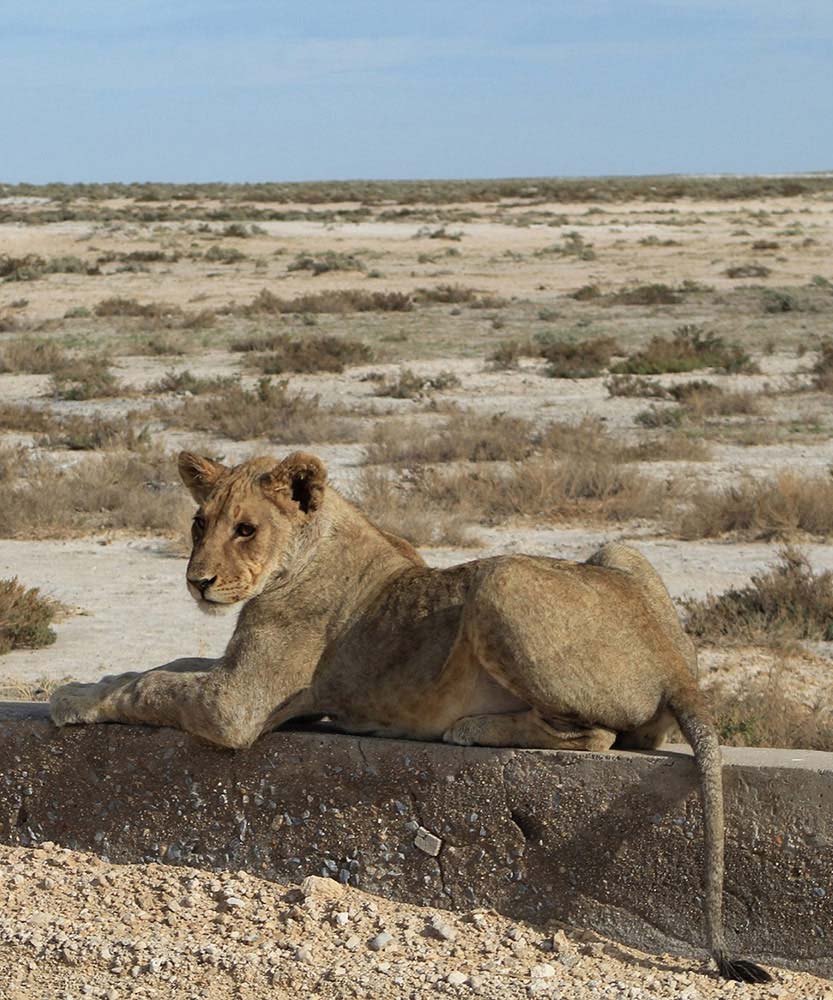
Namibia is in southern Africa, to the north west of the Republic of South Africa. It shares borders with Botswana to the east, and Angola to the north. The country also borders Zambia and Zimbabwe along parts of the narrow Caprivi Strip or Zambezi region in the far north-east of the country.
It’s about 825’000 km2 in area and has a 1572 km Atlantic ocean coastline. This means it’s larger than any European country, excluding Russia, and nearly the size of Germany and Spain combined.
The capital is Windhoek, which is the country’s administrative, judicial and legislative capital. It’s in the centre of the country in the Khomas Hochland highlands, 1655m above sea-level. The city’s name means ‘windy corner’!
The country has a very small population, relative to the size of its land area. In fact, it is the least densely populated country in the world after Mongolia. This is largely due to the aridity of the country, which makes much of the country essentially uninhabitable. In 2011, the population was 2.1 million. It’s expected to increase to over 2.5 million by 2021.
Find out more about visiting Namibia in our travel FAQ, more about the animals you might see in our Namibia wildlife FAQ, and some common Etosha questions in our Etosha National Park FAQ.

